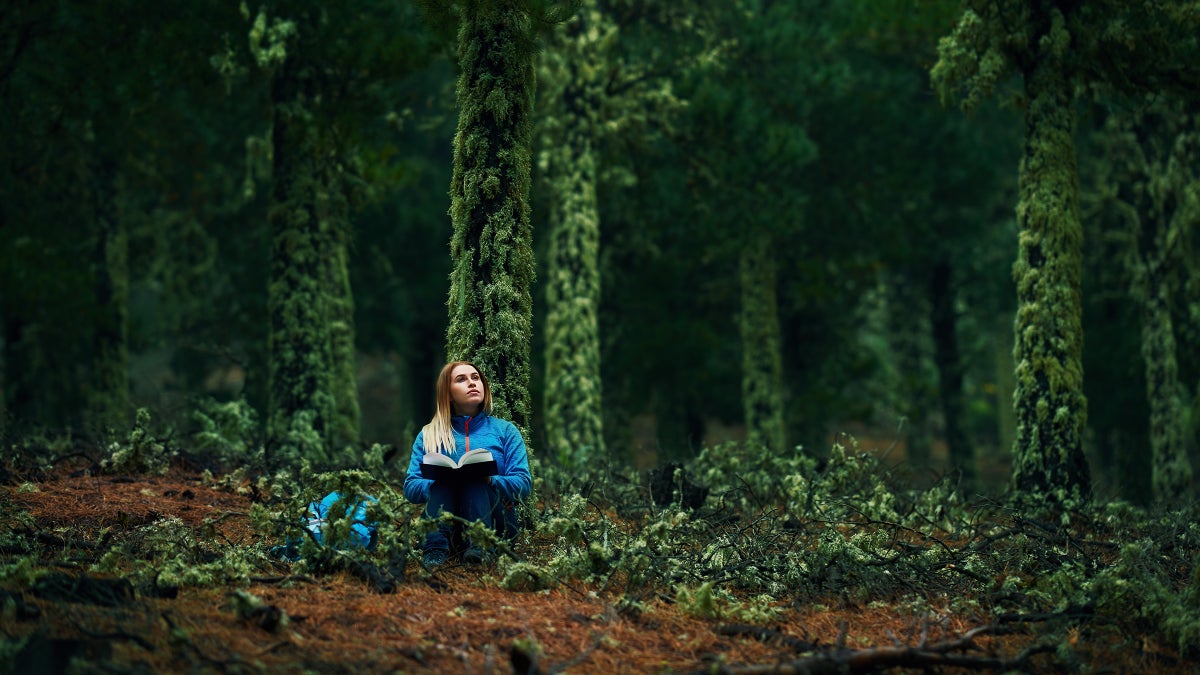
How’s everyone doing? Because I am not great.
Just this morning alone, while reading through my inbox, I wrestled with disappearing orcas, melting polar ice caps, climate-related natural disasters, and the fact that we can’t get a federal bill passed that has even a little bit of foresight.
There is so much bad news.
I am languishing. Burned-out. Feeling both overwhelmed and ineffective at fighting the dread. And then pissed at myself for feeling exhausted. Who am I to take a break when things are this grim? I have friends who are COVID-ward doctors.
But pushing yourself through burnout leads to more burnout, and we can’t be effective citizens, advocates, humans, or friends when we’re ground down. We need respite.
Luckily, we can look to a whole range of cultures for ways to achieve that and find light in the dark season. There have always been bad things happening, and across the subarctic, some of the darkest countries in the world have December practices that date back far before Jesus’s birth. They remind us to get off the train of sad news for a second, take a breath, reflect, and catch up on the year. Maybe even read something good.
In other years I might have glossed over the idea of reflecting and slowing down. But currently I’m feeling the need to pause before rushing into a new year, longer days, and new resolutions. I want to focus on individual stories other than the wave of news breaking in my face. Taking that space feels like a form of resilience.
If you, like me, are not great at getting to that place of reflection on your own, here are some books and films from the past year or so that can help. I’ve arranged them by what they offered me: a sense of wonder, connection, and hope.
Wonder
My Octopus Teacher (Stream on Netflix)
This year’s most talked-about piece of media (at least in the very exclusive pod of tastemakers that is my running group) was My Octopus Teacher. The film won the best-documentary Oscar for its portrayal of a South African diver’s fascination with one of these creatures. What could have been a treacly, top-down flick about a man forging a connection with an animal is instead a joyful take on how nature changes us if we take the time to pay attention.
Gunda (Stream on Hulu)
If you want to stay in the realm of animal consciousness but are after something completely reliant on visuals, consider Gunda, directed by documentary filmmaker Victor Kossakovsky. It’s a meditative, mesmerizing piece about the inner workings of barnyard life, shot completely in black and white, without any narration or talking. Come for the cute baby pigs, stay for the crisp, patient cinematography, which is so vivid that it almost gave me ASMR-level brain tingles.
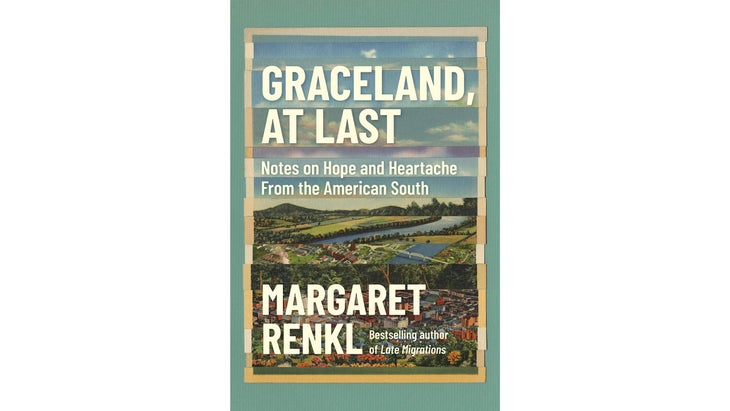
Graceland, at Last, by Margaret Renkl
Essayist Margaret Renkl, who is based in Nashville, Tennessee, is a genius at pulling expansive metaphors out of the natural world. For instance, she’ll gracefully equate butterflies with democracy to get into why we should protect both. She wields such metaphors beautifully in her newest release, Graceland, at Last, which looks at the complexities of her home state. (If you want a similar book, I read that Renkl loves Ross Gay’s Book of Delights, a collection of daily essays that Gay wrote to focus on finding delight in his own life. Topics range from wildflowers to nicknames, and they’ll inspire you to pay attention to your own small pleasures.)
Connection
The Hidden Life of Trees (Rent on YouTube)
Over the past few years there have been several books delving into the neural networks of trees and how these organisms communicate with each other. (This year’s highlight was Finding the Mother Tree, by forest ecologist Suzanne Simard, who pioneered this field of research.) It felt like the subject matter was ripe for a high-definition movie, and this year’s The Hidden Life of Trees—a documentary based on the 2015 book of the same name by Peter Wohlleben—captures the interconnectedness of forests and the myriad ways humans impact that web in hyperrealistic detail. It’s exactly the kind of thing to watch if you want to be reminded of the fact that the earth is bigger and smarter than us.
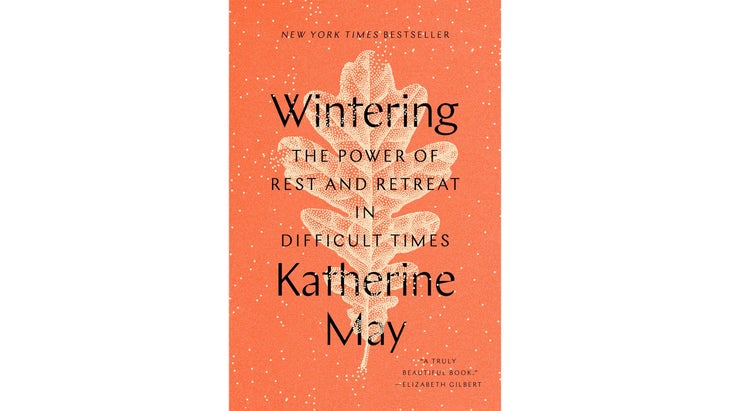
Wintering, by Katherine May
Last winter, pre-vaccine, post-insurgence, when things felt particularly grim, I picked up Wintering, Katherine May’s book about seasonality and how we’re biologically geared to need time to rest, especially in the outdoors. It felt like the answer to a question I didn’t even know I was asking, about why I felt stressed out and disconnected from the natural world. I’ve now reread it twice and gleaned new details each time, on everything from swimming to Stonehenge.
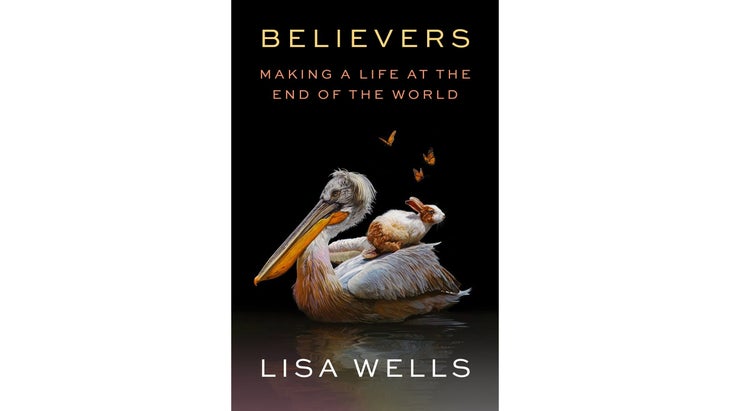
Believers, by Lisa Wells
Creating a livable future isn’t going to be easy, and in Believers, Lisa Wells confronts that head-on. She profiles renegade groups working on creative ways to face climate change, and she digs into the very human struggles that come from trying to build a utopia, or at least a new way of living. The results are gritty, vivid, and real.
Hope
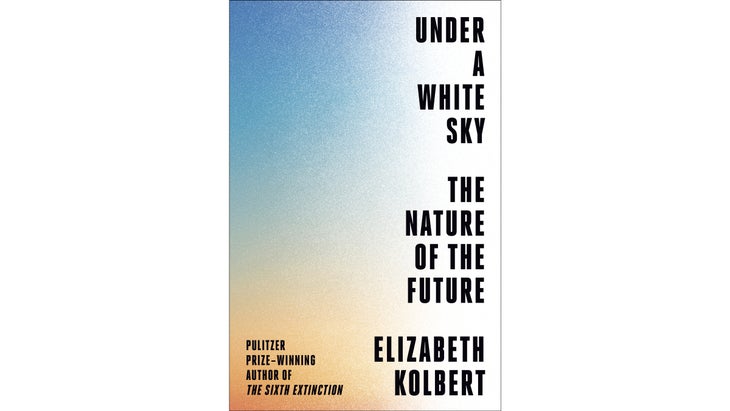
Under a White Sky, by Elizabeth Kolbert
I love Elizabeth Kolbert, but I’d held off reading her newest book, Under a White Sky, because it felt like more bad news than I could bear. However, a friend recently convinced me that Kolbert’s pragmatic, forward-looking realism could help buoy me against my worst anxieties. Her account of the ways we might try to use engineering and innovation to mitigate and adapt to the climate crisis showed me that although humans can’t keep operating indefinitely as we are, we do have options on how to proceed.
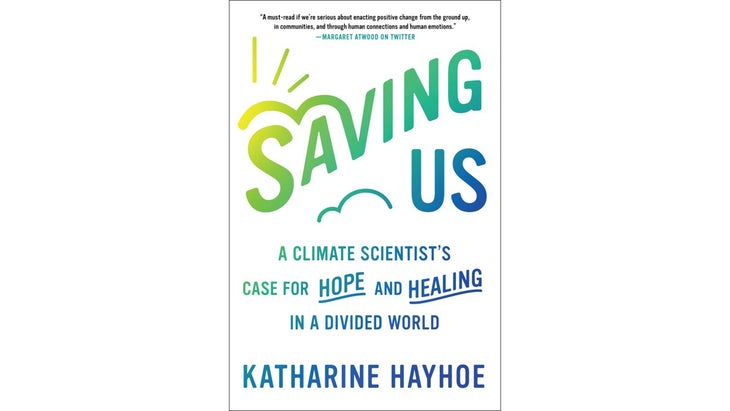
Saving Us, by Katharine Hayhoe
Kolbert is one of my heroes, for the way she tells clear, multifaceted stories about the overwhelming, intractable nature of climate change. Climate scientist Katharine Hayhoe is another—she always seems to be at the forefront of realistic discussions about climate policy and action. Her book Saving Us is less about climate science than it is about how to talk to people who think and feel differently than you do, which seems like a crucial thing to learn right now.
Youth V. Gov (Watch at select theaters)
One of the only things that keeps me from descending into a pit of existential despair is that children and teenagers these days are so much more savvy and clear-eyed about the future than I ever could have imagined being at their age. That’s on full display in Youth V. Gov, a 2020 documentary about a wide-ranging group of kids across the U.S. who are suing the government for its failure to address climate change.
The post Our Environmental Columnist‘s Anti-Burnout End-of-Year Reading and Watching List appeared first on Outside Online.
by lwhelan via Outside Online
Comments